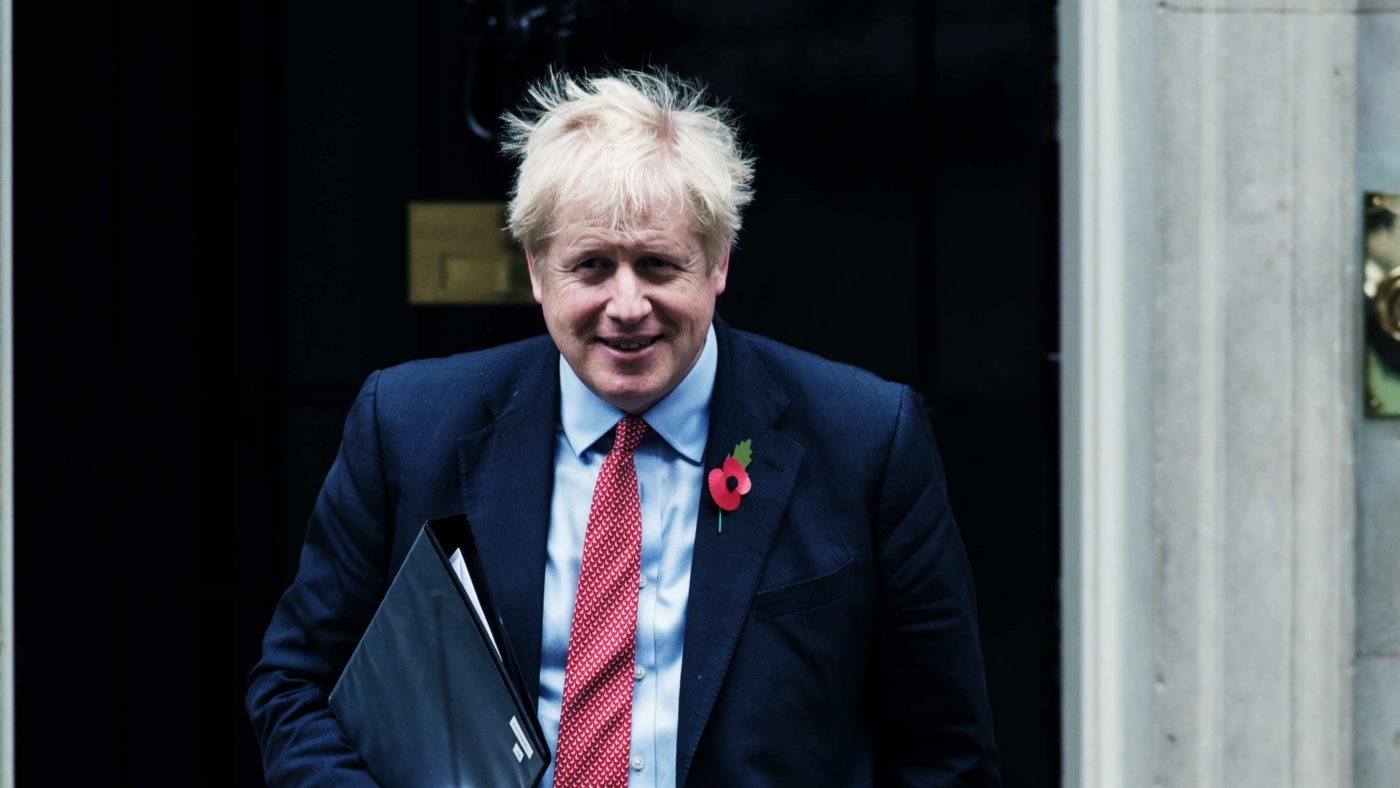If all you wanted for Christmas was a slew of predictions and psephological analysis, you’re in luck. You would have to be particularly brave, or foolhardy, to predict the result of the upcoming election with any confidence.
Insofar as there is a consensus from the various pollsters and pundits, it’s that the electorate is unprecedentedly volatile and we’ve no idea how things will swing. If Theresa May’s experience showed us anything, it’s that six weeks is a long time to hold on to a hefty poll lead.
Connected with this is the view, particularly among those who are not great fans of the Prime Minister, that this is a huge gamble for the Conservatives – a case made by historian Glen O’Hara on these pages yesterday.
That strikes me as a bit unfair. For one thing, he doesn’t have a huge amount of choice in the matter. With no majority in Parliament and the prospect of his Withdrawal Agreement Bill being amended to death by hostile MPs, the only way for him to get his version of Brexit through was to go to the public and ask for a majority. To say he should have ploughed on with the WAB is to ignore this crucial dynamic. The Prime Minister has made a choice, but only in the sense of selecting the least bad from a series of unpalatable options.
And if there is to be an election, this is about as good a time as any for the Conservatives to have one. Unlike in 2017, there is a genuine need for one. Indeed, the sense of naked opportunism in 2017 probably did as much damage to Theresa May as her inept campaign performance. Johnson can credibly argue that this election is about the only way out of the parliamentary impasse, save a second referendum (the arguments for which were lucidly dismantled by my colleague Frank Lawton last week).
The path to that impasse-breaking majority is, to put it mildly, challenging. As Glen points out, the Tories are vulnerable in Scotland and the south of England, where those same Remain forces are gathering their troops.
But though there are clearly obstacles ahead, the Conservatives might just have what it takes to jump over them and get to the finish line.
1. A (reasonably) good starting position
Over-relying on polls is clearly a fool’s errand, but so is ignoring them entirely. The fact the Tories are well ahead with every company is not necessarily a guide to how things will shape up in six week’s time, but it does suggest that about 35% of the electorate are at the very least up for grabs, if not nailed on to vote Tory
2. A clear position on the main issue of the day
Johnson has got his deal, and it’s supported by die-hard Eurosceptics with Brexit ‘street cred’ (including one or two Brexit Party MEPs). By contrast, Labour’s position – do a new deal, then campaign against it – is both complicated and transparently ludicrous. It also promises months more back-and-forth on an issue many voters are sick to death with. Weariness is not a great reason to back a political party, but it might just be the feeling that gets Johnson over the line.
3. Timing
Following on from point 2, it’s much better for Johnson to hold an election now, while the prospect of Brexit being blocked is still alive. It makes it a bit easier for voters who might not otherwise vote Tory to hold their nose and “lend” a vote to Johnson, either because they really want Brexit or because they think the vote should be respected.
4. Labour’s gift to the Scottish Tories
The assumption that the Tories are heading for a mauling in Scotland seems to have been priced in, but here too there are reasons to be optimistic. First is Jeremy Corbyn’s strategy of offering the SNP what they want – a second independence referendum – in the hope of coming to some kind of accommodation in a hung Parliament. That risks reinvigorating the Tory attack line about Labour being in the pocket of the Scottish Nationalists. It also burnishes the Scottish Tories’ credentials as the voice of Unionism north of the border.
5. A long run-up
The Conservatives have been gearing up for an election for some time, unlike in 2017 when May’s decision to go to the polls took some of her own colleagues by surprise as much as the rest of the country. Party insiders also say they are taking more than ever in online donations (though that’s probably for the best, given that the Corbyn superfans in Momentum apparently raised £100,000 in the space of 12 hours yesterday). The twin messages of ‘Get Brexit Done’ and splashing the cash on key public services have had a couple of months to bed in now – and unlike ‘strong and stable government in the national interest’, they actually mean something.
5. Dominic Cummings
You don’t need to buy into any nonsense about ‘4D Chess’ or lionise him as some kind of political svengali, but the Prime Minister’s adviser does have form when it comes to running a successful national campaign based on a few key, endlessly repeated messages. The big question is whether he and the rest of the Conservative team can neutralise Labour’s messages on public services. Judging by today’s PMQs, the idea of a ‘Trump trade deal’ and privatising Our NHS are going to be everywhere for the next 44 days.
CapX depends on the generosity of its readers. If you value what we do, please consider making a donation.


